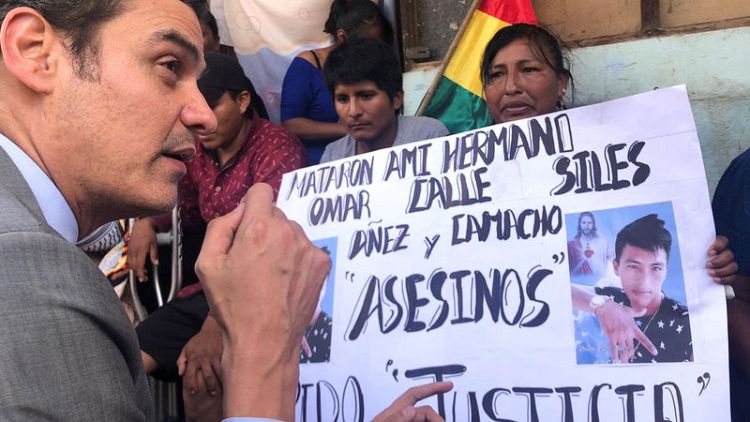By Mitra Taj
COCHABAMBA, Bolivia (Reuters) - Bolivia may need outside help to probe a "massive" amount of human rights violations and post-election violence to ensure findings are seen as credible in the deeply divided South American nation, the head of the region's human rights commission told Reuters on Tuesday.
After a three-day visit to Bolivia, Paulo Abrão, who heads the Inter-American Commission on Human Rights (IACHR), recommended Bolivia seek help from an international panel of experts similar to one formed to investigate the disappearance of 43 students in Mexico.
"Normally in these situations...national institutions aren't prepared to resolve such a massive grouping of violations" of human rights, Abrão said in an interview in Cochabamba, one of the regions hit hardest by recent unrest.
Abrão said he received contradictory accounts of how people died in the upheaval and noted deep distrust of authorities by family members of victims.
Bolivia spiralled into chaos after its Oct. 20 election was mired in controversy amid allegations it had been rigged in favour of President Evo Morales, who resigned under pressure from security forces and protesters.
Most of the at least 33 fatalities since the vote came after interim President Jeanine Áñez, a former Senator, took office on Nov. 12, and the military deployed against Morales backers who had blocked strategic roads to protest what they viewed as a coup.
On Monday, Abrão was welcomed by thousands of people chanting "justice!" during his visit to the Cochabamba town of Sacaba, where nine people were shot dead in demonstrations against Áñez.
Abrão visited a roadside memorial for victims and listened to testimony of their family members and the wounded, who described the use of live ammunition by security forces to repress what they said had been a peaceful protest.
"My brother Julio Pinto is in intensive therapy," Felix Pinto, an indigenous farmer told Abrão and his team. "It's as if he's dead right now."
Áñez' government and the military deny security forces are to blame for the deaths, suggesting instigators killed the protesters to destabilize her government.
The attorney general has said that bullets found are not a type used by the military or police, but his office has yet to announce an investigation to find those responsible.
Despite ongoing hostilities, both sides have managed to reach a series of deals to pave the way for new elections and wind down road blockades and troops in the streets.
Abrão praised recent talks. "That's the only path toward a peaceful end to the crisis," he said. "Social pacification is the best environment to protect human rights."
(Reporting By Mitra Taj; Editing by Bill Berkrot)


